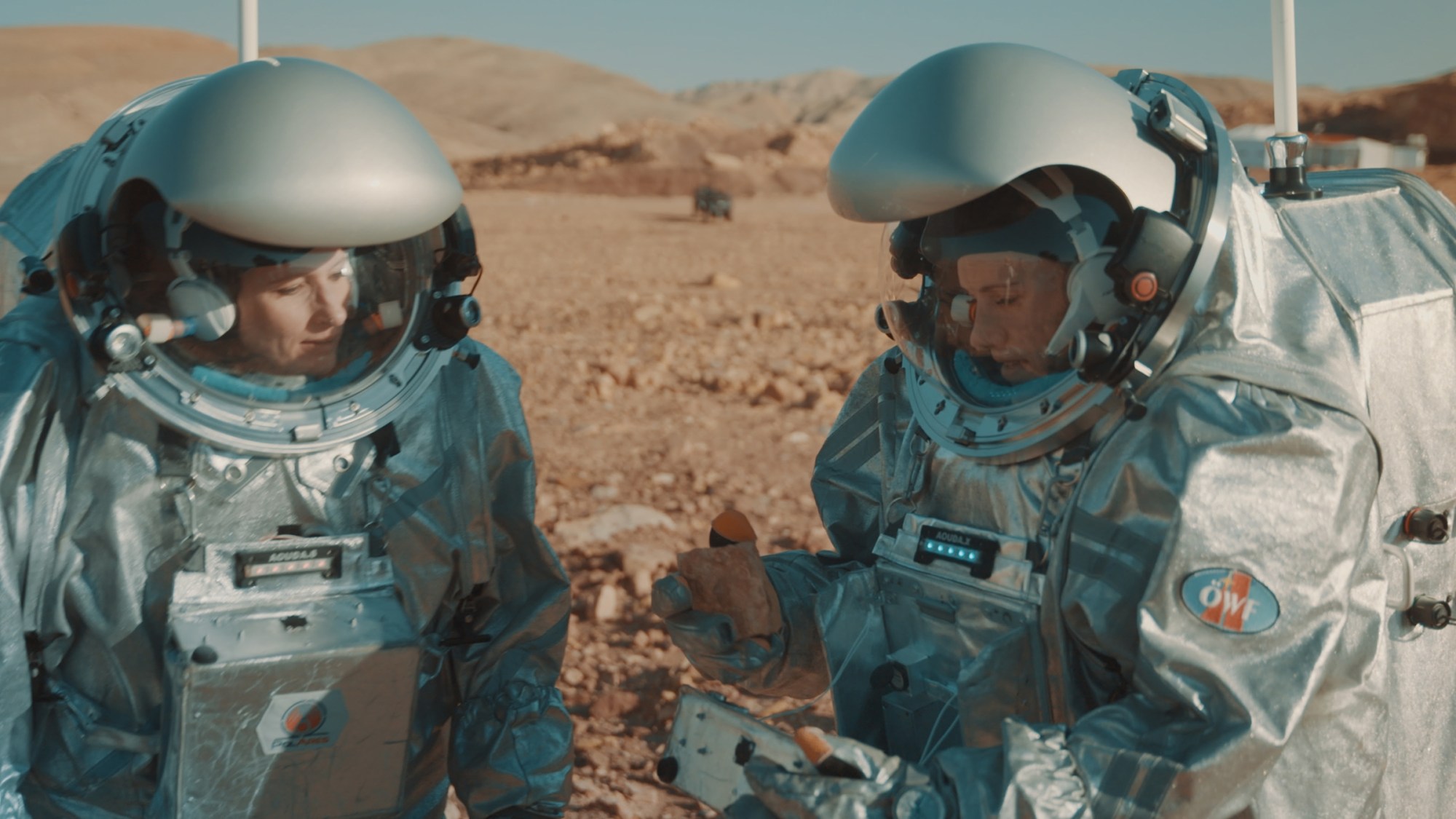
- Film
Docs: “Last Exit: Space” Delivers Lively, Thought-Provoking Future-Gazing
As the opening narration of Last Exit: Space aptly notes, outer space has held a special place of fascination for humankind from time immemorial. We see it in our shared cultural history, spanning both art and science. The difference now, as this new documentary from director Rudolph Herzog (son of acclaimed filmmaker Werner Herzog) points out, is that an inarguable degradation of environmental conditions has made extraterrestrial colonization, once the domain of poets and dreamers, feel like an imperative for the continued existence of our species.
That might sound like the recipe for a slice of somber, scolding, dystopian future-gazing. The good news is that Last Exit: Space, now streaming worldwide on Discovery+, is far from that. It’s lively, compelling, fun. With a nicely balanced sense of academic inquiry and “Everyman” wonderment, it provides a survey of the many problems and concerns, ranging from practical to theoretical, that must be addressed to permanently sustain human life off planet Earth.
The younger Herzog has, over the course of his career, exhibited many of the same interests and predilections as his father, dabbling in documentaries (including several projects evaluating the natural world) while also tackling fiction features with edgy concepts or other unusual elements (2019’s How to Fake a War). The professional line between the two is further blurred with Last Exit: Space, since the son hired his father to narrate the movie and writes him lines that lean into the sheer delight of the latter’s trademark droll delivery.
Another important component of this spry, playful tone is the smart curation of interviewees. There are plenty of talking heads that might be classified as of the expected type, like astronomer Dr. Lucianne Walkowicz and astrophysicist and former NASA astronaut Mike Foale. Individually and collectively, they provide firsthand knowledge and hard science which crucially undergird Herzog’s film. Understanding, for example, the 2009 launch of the Kepler telescope (which located thousands of previously unknown Earth-sized exoplanets that, in turn, imply the existence of billions more) is foundational when the film later discusses and considers advances in medical science that would allow for suspended-animation hibernation and, also, so-called “generational ships” in which people over hundreds of years would live, procreate and die to allow for their ancestors to settle distant heavenly bodies.
What elevates Last Exit: Space from other like-minded efforts, and makes it so interesting and appealing, is that it has the good sense not to take itself too seriously. That means there’s time for chats with “space anthropologist” Taylor Genovese, who postulates that extraterrestrial outposts will be less futuristic, gleaming cities and more like cavernous, glorified Amazon factories, with workers perhaps dangerously beholden to the whims of private companies, and even individuals. There’s Anna Olsen, an amateur Dutch explorer who, along with an intrepid team that includes her daycare manager father, provides a more egalitarian view of private outer space travel. There’s even “space sexologist” Simon Dubé, who explains his concerns about interstellar inbreeding but pontificates about the possibilities of weightless fornication unlocking new pleasures and preferences in an evolved human sexuality.
This approach isn’t played for rib-nudging giggles, though. Last Exit: Space assembles all of these disparate voices and perspectives, showing them to be pieces of the same beautiful puzzle. And at a lean, trim 80 minutes, it doesn’t overstay its welcome. Herzog’s film, marked by the same rangy curiosity possessed by his father’s best works, ends up being an unlikely vessel of hope.